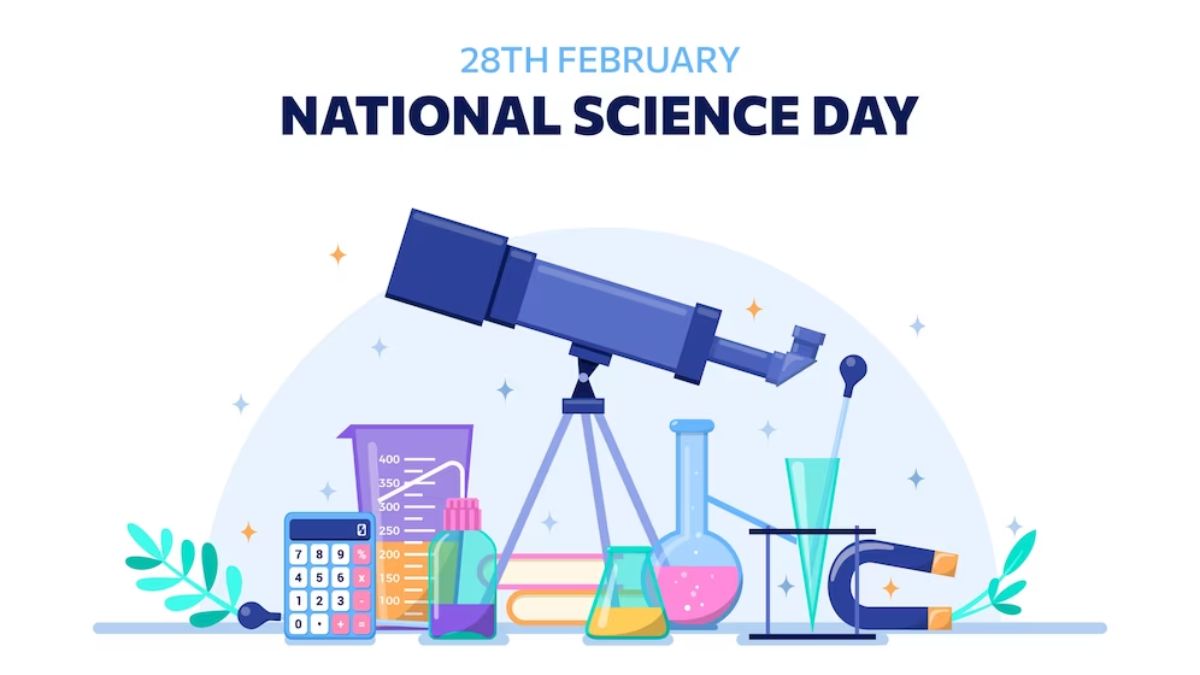- By Prerna Targhotra
- Tue, 28 Feb 2023 07:59 AM (IST)
- Source:JND
EVERY YEAR, February 28 is celebrated as National Science Day to commemorate the discovery of the 'Raman Effect' by the scientist C.V. Raman. He discovered the Raman Effect on February 28, 1928. The Raman effect is a phenomenon in which a beam of light passing through a transparent material is scattered in a way that can reveal information about the molecular structure of the material.
National Science Day is an opportunity to celebrate the innovations and contributions of scientists to the country. It is a day that aims to encourage scientific knowledge and development. On this special day, schools and colleges uphold various competitions such as debates, essay writing, speech, and many more. Therefore, we bring you some easy essay and speech ideas for children and teachers.
Speech Tips
1. Keep it short and to the point.
2. Consider what your audience wants to hear.
3. Nervousness is normal, therefore, practice and prepare.
4. Organise your material most effectively to attain your purpose.
5. Be open to feedback.
6. Don't read until you have to. Work from an outline.
7. Use your voice and hands effectively.
Speech Ideas
National Science Day is celebrated to honour the discovery of the Raman effect made by Indian physicist C.V. Raman. In 1986, NCSTC which is an Abbreviation for the National council for science and technology communication. Requested the union government to designate a day to honour the incredible discovery made by C.V. Raman. Over the years this day began being celebrated in various educational institutions and organisations that are solely dedicated to science and technology. It is discoveries like these and the efforts of Indian doctors and scientists that have made such advancements possible. India in today's scenario holds a great position when it comes to the advancement of science and technology all over the world. These great discoveries have relatively made the lives of millions of people much easier and continue to do so in not only India but also around the world.
Essay Ideas
National Science Day is celebrated every year to celebrate the importance of science and remind us of the impact it has had on the lives of humans. It also allows us to remind ourselves of our ambition and might and how discipline and grit work wonders when it comes to making life easier through science and technology. National Science Day highlights the insurmountable might and intelligence of humans to have created such spectacular things and make unmatchable discoveries that began from fire to modern-day phenomena. This day is also observed to provide people with a platform to discuss the prevailing problems faced by various doctors and scientists in the field of science and technology and devise ways through which we can contribute towards curbing those problems.
Important Facts To Include In Your Speech Or Essay
1. The first-ever National Science Day was celebrated in 1987, as per the request of NCSTC.
2. National Science Day is thoroughly acknowledged by not only Indians but also other nations as well. In 2013 Google released a doodle of C.V. Raman in honour of his 125th birth anniversary.
3. Under the initiative taken by the government to popularise science and technology amongst the youth, National Science Planetarium was constructed in Delhi.
4. National Science Day is a great initiative by the Government of India towards the betterment and development of Science as an important field.
Essay Idea
Sir Chandrasekhara Venkata Raman, famously known as Sir C.V. Raman, was born on 7 November 1888 to Tamil Brahmin parents in Tiruchirapalli, Madras Presidency, British India. He won the Nobel Prize in Physics for discovering the famous 'The Raman Effect', also known as 'Scattering of Light' in 1930. National Science Day is celebrated to commemorate the famous Indian Physicist Sir C.V. Raman’s discovery of the 'Raman Effect.' Science Day is celebrated to keep people aware and spread a message about the importance of scientific theories and applications in everyday life. This day is celebrated to spread awareness and a message about the importance of scientific theories and applications in everyday life.

